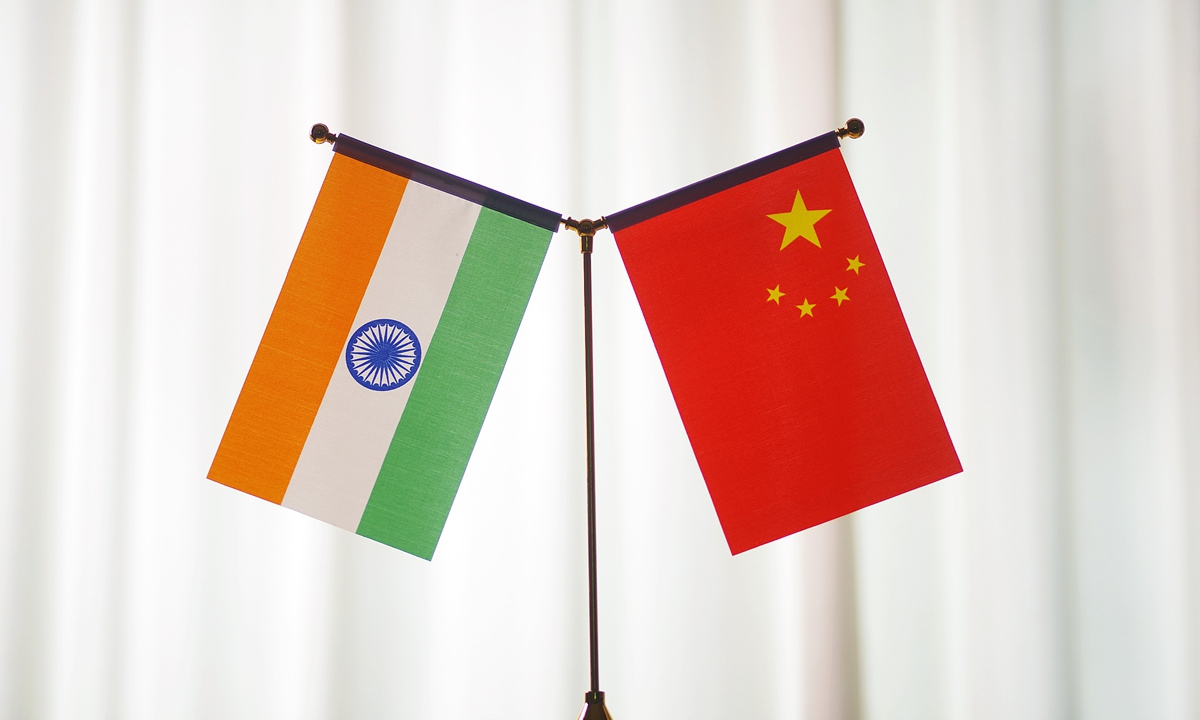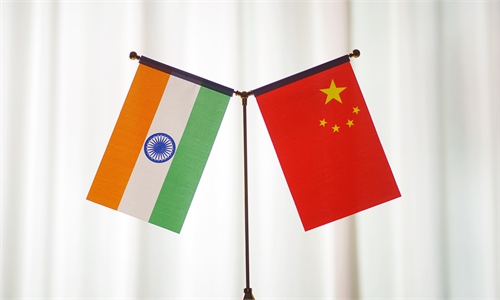Latest China-India border talks consolidate trust from previous round, as both disregard US agitation

China India Photo:CFP
The 15th round of China-India corps commander level meeting concluded on Friday, continuing the positive atmosphere since the 14th round of talk, as the two sides reached consensus on agreeing to maintain dialogue via military and diplomatic channels to reach a mutually acceptable resolution to the remaining issues at the earliest time.
The latest round of corps commander level talks came despite US agitation, which Chinese analysts said contrarily strengthened the determination of China and India to consolidate achievements and manage differences.
The focus of the talks is expected to be the completion of the stalled disengagement process in the Hot Springs (Patrolling Point-15) areas, Indian media reported.
According to the joint press release published by China's Ministry of Defense on Saturday, the two sides "carried forward their discussions from the previous round held on January 12, 2022 for the resolution of the relevant issues along the LAC in the Western Sector. They had a detailed exchange of views in this regard, in keeping with the guidance provided by the State Leaders to work for the resolution of the remaining issues at the earliest."
The two sides also reaffirmed that such a resolution would help restore peace and tranquility along the LAC in the Western Sector and facilitate progress in respect to bilateral relations. The two sides also agreed to maintain the security and stability on the ground in the Western Sector in the interim. They agreed to maintain dialogue via military and diplomatic channels to reach a mutually acceptable resolution of the remaining issues at the earliest, according to the joint press release.
The meeting is a continuation of positive momentum during the 14th round of talks, and further consolidated mutual trust, Qian Feng, director of the research department at the National Strategy Institute at Tsinghua University, told the Global Times.
Before the meeting, both China and India sent positive signals. Chinese State Councilor and Foreign Minister Wang Yi said on Monday that China has always advocated the use of equal consultation and control of differences, seeking a fair and reasonable solution. He said China and India should be partners in mutual achievement, rather than opponents that drain each other's energy.
Citing sources in the Indian defense establishment, Indian media said on Tuesday that "both sides will focus to achieve resolution of balance friction areas. Recent statements by both sides to find a mutually acceptable solution have been encouraging and positive."
Since the 14th round of talks in January, both sides have actively maintained the existing achievements and continued to strengthen the management and control of front-line troops, Qian said. "There have been no new incidents that interfered with bilateral relations and escalating border standoff."
However, ahead of the meeting, Commander of US Indo-Pacific Command Admiral John Aquilino said on Wednesday that China-India tensions along the Line of Actual Control are the "worst" in over four decades, Indian media reported.
For some US politicians who see China as a strategic rival, China-India discord would only bring benefits to Washington: it drains resources from China's military and woos India in terms of the defense and security, analysts said.
The Ukraine crisis has made more countries, including India, to clearly see the US' approach in offshore balancing: control Europe in security, financial and economic terms by inciting conflict between Russia and Ukraine, Qian said.
Qian added that some Indian analysts have already been sounding unusual voices against the US' scheme, saying that India's policies should promote a greater awareness that China and India should put the overall interests and fundamental interests first, instead of being agitated by the US.



